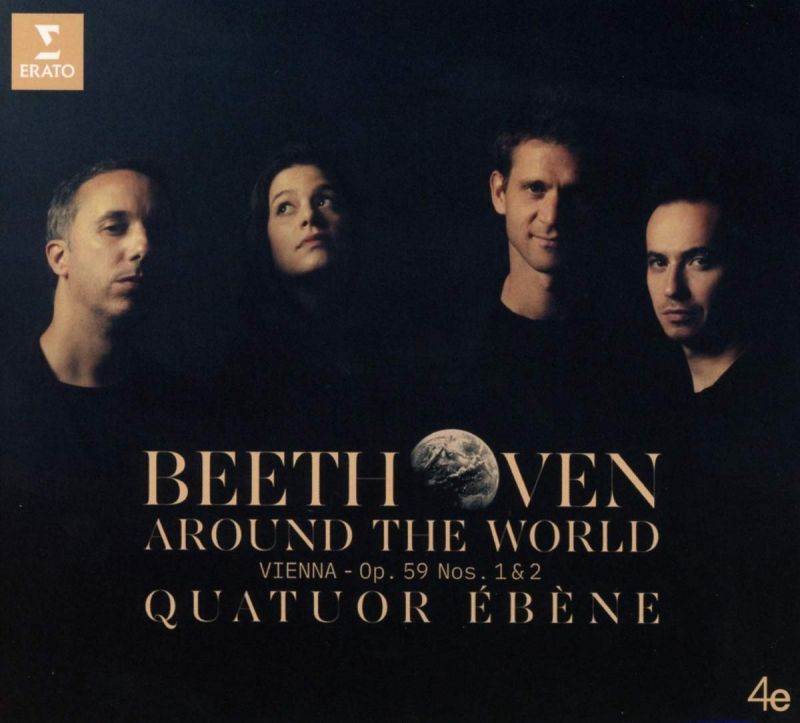BEETHOVEN String Quartets Nos 7 & 8 (Quatuor Ébène)
View record and artist detailsRecord and Artist Details
Composer or Director: Ludwig van Beethoven
Genre:
Chamber
Label: Erato
Magazine Review Date: 11/2019
Media Format: CD or Download
Media Runtime: 78
Mastering:
DDD
Catalogue Number: 9029539602

Tracks:
| Composition | Artist Credit |
|---|---|
| String Quartet No. 7, 'Rasumovsky' |
Ludwig van Beethoven, Composer
Ébène Quartet Ludwig van Beethoven, Composer |
| String Quartet No. 8, 'Rasumovsky' |
Ludwig van Beethoven, Composer
Ébène Quartet Ludwig van Beethoven, Composer |
Author: Peter Quantrill
This acute sense of emotional timing distinguishes the Ébènes from many of their contemporary rivals. They present Beethoven unburdened by the weight of history or hindsight, leaving the quartets to unfold at the pace of their own narratives. They may not approach the tragic rapture of the Végh Quartet (Naïve) in that Adagio mesto, or the overwhelming catharsis of the Busch (EMI/Warner) in the finale, but the lived intensity of Op 59 No 2’s opening gambit resists superfluous historical comparison. The point is pressed home in the following Allegro and then reprised as a bolt from the blue that kicks down the door of the development section.
In each succeeding movement the Ébènes take a little more time than the recent Cuarteto Casals (Harmonia Mundi, 5/19), and they use it to their advantage. The opening note of the Adagio – really molto here – is held just long enough to cut us adrift from tonal certainties, and orchestral parallels spring to mind once more in the forlorn tread of the dotted second theme (1'22"), which reverses the direction of the ‘The rese’ idea in the Fourth Symphony – Op 60, you won’t need reminding. While the rest of the Ébène cycle will be recorded elsewhere, it seems right to begin in Vienna, and Raphaël Merlin’s cello plants the sound of the Scherzo in a Biedermeier world not entirely divested of charm by its unsettling syncopation. There is a sense of tradition revived and renewed about these readings that should appeal to all but the most iconoclastic listener.
Discover the world's largest classical music catalogue with Presto Music.

Gramophone Digital Club
- Digital Edition
- Digital Archive
- Reviews Database
- Full website access
From £8.75 / month
Subscribe
Gramophone Full Club
- Print Edition
- Digital Edition
- Digital Archive
- Reviews Database
- Full website access
From £11.00 / month
Subscribe
If you are a library, university or other organisation that would be interested in an institutional subscription to Gramophone please click here for further information.




